Following Emmanuel Macron’s state visit to Germany, the Franco-German Defense and Security Council is to send positive signals to Ukraine and on joint armaments projects on Tuesday. According to the Élysée, Macron’s proposals from his Sorbonne speech will form the basis for the discussions. The French President wants to form a European initiative to create capacities for strikes far into enemy territory and for missile defense.
In contrast to the European Sky Shield Initiative (Essi) air defense project, which Scholz initiated in 2022 and which runs counter to French arms protectionism with American procurements, Berlin and Paris appear to be moving towards each other in the development of air defense. In the Economist, Scholz welcomed Macron’s emphasis on the European dimension of France’s nuclear forces and called for discussions on the right mix of capabilities to defend Europe and deter attackers. “Bloomberg” reports that concrete plans for deeper air defense cooperation will be presented at the meeting.
Paris accuses Berlin of being too timid in its support for Ukraine. Macron is already supporting the Ukrainian fighters with Scalp cruise missiles, while Scholz is holding back the Taurus cruise missiles. The ministers of the two countries could send messages of success with talks on the Future Combat Air System (FCAS) fighter jet project and the mirror project for the “tank of the future” Main Ground Combat System (MGCS). The aircraft project is currently proceeding without conflict because there is no need to negotiate.
And with this, welcome to our 700th issue!
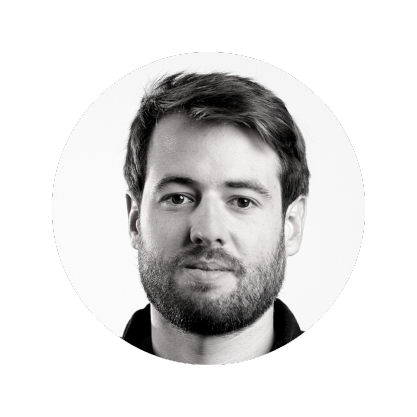
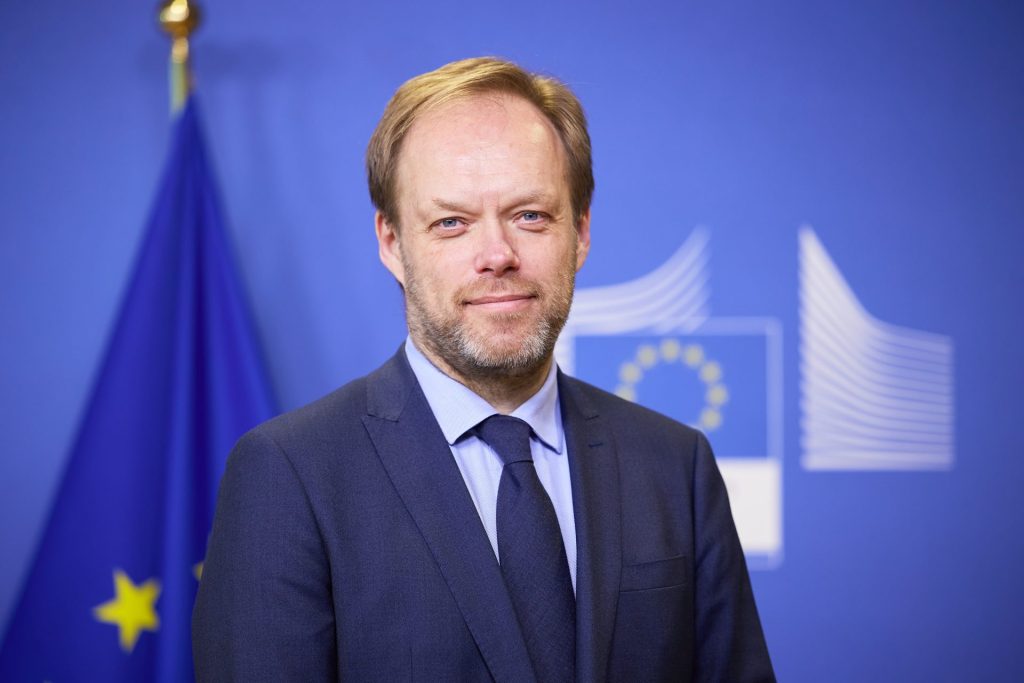
Kurt Vandenberghe, the commission proposed a net greenhouse gas reduction target of 90 percent for 2040, at a point where the legislation for the 2030 climate target is not yet fully implemented. What exactly are you preparing currently?
The full climate transition is basically an agenda of modernizing our economy and investing. Investment that our economy needs, because investment in China is 40 percent of GDP, in Europe it is 20 percent. So, all the talk about competitiveness is basically brought down to the question of how much you invest in your economy. And we have a lot of catching up to do.
But why now? There’s hardly any momentum for climate policy at the moment.
When you talk about investment, you can’t have a perspective of six years. You need a perspective of ten, 15, 20 years, because that’s the time horizon for many of these investments. We presented the 2040 communication to give long-term predictability and certainty to investors and economic actors.
And the Green Deal currently does not give that predictability? That was the main reason to set it up in the first place, wasn’t it?
When we look at investment in the future, we have a framework with the Fit for 55 package that is very fit for 2030. But it is not necessarily fit for 2040. With our current framework, if we extend beyond 2030, we will reduce emissions by 88 percent in 2040, but not in the most cost-efficient manner.
Why not?
ETS 1 for example would go to zero emission allowances by 2039 which would be prohibitive for a number of industry sectors. Take cement for example, they have process emissions which they cannot mitigate or abate so it will become very expensive for them. Also, not all sectors are covered sufficiently, like agriculture for instance. However, we do not want to change the framework for 2030. So, we will not add rules or change rules. We’re only talking about what needs to change after that.
What is the most cost-efficient way?
It won’t be a radical overhaul. What works extremely well is emission trading. So, putting a price on carbon will remain the workhorse of our climate policy. But we also need to go to net negative emissions, so we need carbon removals big time in the future. That’s why we study how to reward carbon removals in the ETS.
For instance, by including the agrifood sector?
The agrifood sector can be a very important sink for carbon. But let me be very clear, we do not have a position on this yet whether we do an ETS for agrifood. We’re studying this currently. But we see an increasing need for land in the future, not only for foods. While food remains the basic premise of agriculture and farming, there’s a need for much more from land in the future: Bioenergy, biogenic carbon, biomass that we need for a circular economy that moves away from fossil fuels. There is the opportunity to store carbon in the soil. So, we argue that there is a greater portfolio of business opportunities ahead for farmers, additional areas of farming that rewards them. One is carbon removals.
And what happens to the EU subsidy scheme for farmers, the so-called CAP?
If there is a broader scale of business opportunities, we should move the model of farming from one based on European subsidies to one based on market signals. This way the farmers become real entrepreneurs and economic actors that respond not to subsidies for which they must fill out a lot of paperwork, but to what the market is willing to buy and to pay for it. If we go in this direction, then what is very important is that the market signals internalize the external costs. In other words, the cost of greenhouse gas emissions. That’s why we’re looking into the possibility of an Agrifood-ETS.
And you think this will get support from farmers?
I think the agrifood ecosystem as a whole is not opposed in principle to this, because the food producers know that this is a way of dealing with scope three emissions, that otherwise they don’t know how to deal with. And the farming sector says, well, it could be interesting as far as it generates revenues that could go back to reward sustainable farming practices. And it would also send a price signal to the consumer, who would be incentivized to a better consumption behavior.
What is the timeline of the legislation for the 2040 target?
We’re currently putting all the studies in place, all the expert groups, all the analysis that is needed. The sequence we will recommend to the next commission is that as soon as the college comes into office, end of this year or beginning of 2025, we adopt the proposal to amend the climate law to introduce the 2040 target. That will then go through the legislative process in the European Parliament and the council. By summer 2025 the Commission needs to come up with the proposal for the next Multiannual Financial Framework which will be crucial as well because, as achieving the targets will be all about investments. Therefore, the way European budget can mobilize and capitalize investment will be very important. In 2026 we would then come up with a new package of proposals to make ourselves fit for 2040.
2026 is also the year when many reviews of current legislations are due…
Yes, we need to avoid that these reviews are done in isolation one from another because we need a systemic view to this. That’s why we want the new legislative package in 2026 which then will give us three or four years to discuss and negotiate with stakeholders, with member states and with the parliament. This way we can prepare the next decades in very close dialogue with all the parties concerned.
António Costa’s track record as Portuguese head of government and his good relations with his European colleagues are some of his strongest credentials. His decision to resign from office has also earned him respect.
In November, the public prosecutor’s office linked his name to the so-called Operation Influencer – based on “vague and contradictory” suspicions, as the investigating judge said in February. Last year, it was even reported that the investigators had made a mistake and confused the prime minister with the economy minister of almost the same name, António Costa Silva.
Costa’s resignation is seen as an example of political responsibility: he resigned without being charged because he considered the initiation of an investigation against him by the Supreme Court to be “incompatible” with the dignity of his office.
Costa made it clear in an interview at the beginning of May that his political career is not over yet. When asked about the possibility of holding European office, the socialist replied “it depends on the circumstances,” but “with an ongoing trial, it is very difficult to find a solution.” Costa has asked the public prosecutor’s office to let him testify “as soon as possible” and offers his “full willingness to cooperate with justice” in order to “dispel all doubts” regarding the suspicions weighing on him.
More than five months have passed and still no one in Portugal knows what circumstances led to Costa being investigated in the influencer affair. At the beginning of May, around fifty personalities from both socialist and conservative circles signed a manifesto denouncing the political interference of the public prosecutor’s office in the case.
The signatories of the document call for greater control of the public prosecutor’s office, which they accuse of violating judicial secrecy and abusing it by using restrictive measures as well as “undue interference in political power.” It has brought Portugal to the “painful brink” of overthrowing two parliamentary majorities.
The manifesto sharply criticizes the fact that the public prosecutor’s office has still not summoned Costa to a hearing. In mid-April, the Supreme Court decided to hand over the investigation against Costa to the Central Investigation and Prosecution Authority (DCIAP). The case has therefore gone to the first instance, like that of any other citizen.
“Costa is credited with strong negotiating skills and the ability to solve problems. His always very realpolitik approach as Prime Minister of Portugal shortly after the euro crisis was well received both by the Portuguese and in Brussels,” says Andreas Bock from the European Council on Foreign Relations (ECFR).
Carlos Molina del Pozo, an expert in EU law, emphasizes Costa’s leadership personality. In his opinion, the office of EU Council President is held by politicians of little political stature. “Costa has the charisma and leadership qualities to pull the other European heads of state and government along and renew the European Council.” Costa is a politician of the caliber of Jacques Delors or Helmut Kohl, who always had the strengthening of the European project in mind.
Influential heads of government such as Olaf Scholz and Emmanuel Macron are said to support Costa’s candidacy, according to media reports. Portugal’s President Marcelo Rebelo de Sousa also confirmed his support for Costa. However, other European heads of state may have doubts due to the ongoing investigations. “That is why alternative candidates are certainly being considered. So far, however, no other candidate has emerged,” says Bock.
In addition to Costa, Spain’s Pedro Sánchez and Danish Prime Minister Mette Frederiksen were also among the names mentioned by the Socialists to succeed Charles Michel. However, Sánchez’s possible candidacy lost weight after he took a five-day break from his duties as Spanish Prime Minister at the end of April to consider whether he would remain in office.
“Sánchez is appreciated by many in Brussels, but there are also a lot of reservations about his person. Above all, his critics doubt that he has the right profile for the job,” says Andreas Bock from ECFR. “Sánchez is also accused of using the Spanish Council Presidency to pursue domestic political goals.” Frederiksen is said to have taken herself out of the running in mid-May when she answered “no” to whether she would be considered for an EU presidency on the fringes of a conference in Copenhagen, Bock continued. Frederiksen is controversial because of her strict immigration policy.
May 30-31, 2024, Svendborg (Denmark)
EC, Conference European Maritime Day 2024
The European Commission (EC) discusses and outlines joint action on maritime affairs and sustainable blue economy. INFO & REGISTRATION
May 30-31, 2024, Geneva (Switzerland)
AI for Good Global Summit
The summit provides opportunities for AI innovators and problem owners to learn, build and connect to help identify practical AI solutions to advance the United Nations Sustainable Development Goals. INFO & REGISTRATION
May 30, 2024, 11 a.m., online
smartEn, Seminar Electric Vehicles coupled with on-site solar generation: opportunities and implications for smart buildings
Smart Energy Europe (smartEn) explores the EU project V2Market. INFO & REGISTRATION
May 30, 2024, 11-12:30 a.m., online
Marcogaz, Seminar Tech Forum on Gas Odorization
Marcogaz addresses the production, measurement and regulation of gas odorants in Europe. INFO & REGISTRATION
May 30, 2024, 3-5 p.m., Brussels (Belgium)
ERCST, Seminar 2024 State of the European Hydrogen Market Report
The European Roundtable on Climate Change and Sustainable Transition (ERCST) presents the EU Hydrogen Market Report. INFO & REGISTRATION
EU Commission President Ursula von der Leyen is once again seeking an EPP alliance with social democrats and liberals after the European elections. “I want to form the platform in the middle,” she said on Monday at the WDR Europaforum. Whether this would include the Greens alongside the S&D and Renew would depend on how they act after the election.
Leading social democrats had harshly criticized the EPP lead candidate because she had shown herself open to cooperation with parties to the right of the EPP, such as the Fratelli d’Italia. Italy’s Prime Minister Giorgia Meloni is “clearly pro-European” and has positioned herself against Russia’s President Putin, said von der Leyen during the TV debate last Thursday.
However, she does not want this to be understood as an absolution of suspicion for working with Meloni: “You’ve never heard me say that,” she replied to a question from the moderator. After the election, the parliamentary groups would first have to reorganize. She wanted to use the platform to “make good offers that would find majorities on a case-by-case basis.” Especially in these times, it is important to form a strong majority for pro-European policies.
Von der Leyen ruled out cooperation with Marine Le Pen’s French Rassemblement National (RN). “They are paid by Putin,” she said, and wanted to destroy this Europe. Le Pen had campaigned aggressively at the weekend to form a parliamentary group with Meloni’s Fratelli after the election. So far, the RN is in the far-right ID group, the Fratelli in the national-conservative ECR. Together they could become the second strongest force in the new parliament, according to Le Pen.
Von der Leyen said that it was not her job to judge how radical Meloni, who is often dubbed post-fascist, was. The Commission prepares annual rule of law reports for this purpose, which must be based on objective facts. It must work well with Meloni, as with the other 26 heads of state and government in the European Council, in order to move Europe forward. tho
All texts on the 2024 European elections can be found here.
The Member States adopted several laws on industrial and climate policy on Tuesday. With the Net-Zero Industry Act (NZIA), the EU wants to ramp up production capacities in order to cover 40 percent of the technologies required for decarbonization from domestic production from 2030. However, the target is voluntary. For this, approval procedures will be simplified, for example.
The NZIA also sets a target for the geological storage of carbon dioxide (CCS). From 2030, the EU wants to store 50 million tons of the greenhouse gas underground.
A further regulation was passed to reduce methane in the energy sector. It restricts the flaring and venting of the greenhouse gas in the extraction of fossil fuels. For 2030, the Commission must present maximum values for methane intensity in the extraction of coal, oil and gas. If producers or importers do not comply with the limits, they will face penalties.
The methane regulation is a key measure for the EU to fulfill the Global Methane Pledge. Commission President Ursula von der Leyen presented the initiative three years ago together with US President Joe Biden at COP26 in Glasgow. The signatories want to reduce global methane emissions by 30 percent by 2030 compared to 2020.
The Council also gave its final approval to the Ecodesign Regulation on Monday. The law has thus been adopted and can be published in the Official Journal of the EU after the President of the European Parliament and the President of the Council have signed it. It will enter into force 20 days later. The new rules will apply 24 months after entry into force, i.e. from summer 2026.
The Ecodesign Regulation sets out requirements for more sustainable products and prohibits the destruction of unsold textiles and footwear. It replaces the existing Ecodesign Directive and extends its scope beyond energy products to almost all products placed on the EU market. The Commission will define the specific ecodesign requirements for individual product groups in delegated acts. According to the Federal Ministry of Economics, the first legal acts are expected at the end of 2025. The industry will then have 18 months to comply. ber/leo/rtr
Hungary has come under massive pressure due to its blockade of new EU military aid for Ukraine. Following a meeting of EU foreign ministers in Brussels, EU Foreign Policy Chief Josep Borrell spoke of an unusually “heated” debate. The dispute had “gone very far,” said Lithuania’s Foreign Minister Gabrielius Landsbergis. This was indirectly confirmed by Hungary. The “supporters of war” had “shouted” at the meeting, said Hungarian Foreign Minister Péter Szijjártó. However, his government will not give in to the pressure.
At issue are seven European legal texts and military aid worth €5 billion, which Hungary is blocking with its veto. Most recently, the dispute has also spread to Russian assets, the proceeds of which the EU wants to use for Ukraine.
Federal Foreign Minister Annalena Baerbock called on the government in Budapest to end the blockade as quickly as possible. She appealed “urgently to Hungary” to allow further support for Ukraine. Representatives of almost all EU states expressed similar sentiments. Borrell said that the blockade was no longer proportionate and was leading to delays in military aid. “This delay can be measured in terms of human lives,” said the Spaniard.
Regardless of Hungarian resistance, the Permanent Representatives Committee will discuss the utilization of Russian assets this week, Borrell announced. The interest income is to amount to €2.5 to €3 billion per year and 90 percent of it is to be used for arms aid. He hoped that Hungary would not block this initiative, said Borrell. After all, Budapest had already received the promise that the Hungarian share would not be used for arms aid. This is also about the EU’s credibility.
At their meeting, the foreign ministers also agreed on a legal framework that enables sanctioning human rights violations in Russia. On this basis, sanctions were initially imposed on Russian judges who were involved in proceedings against the Kremlin critic Alexei Navalny, who died in a prison camp in February.
In addition, the Federal Penitentiary Service of the Russian Federation and persons accused of repression against artists as well as the Russian human rights activist Oleg Orlov, who was sentenced to two and a half years in prison. The new sanctions consist in particular of EU entry bans and asset freezes.
Another topic of the Foreign Affairs Council was the war in Gaza. Borrell was “horrified by the news coming out of Rafah on Israeli strikes killing dozens of displaced persons, including small children.” He condemned this in the strongest possible terms. However, possible reactions have not yet been discussed, said the EU chief diplomat. Some EU countries such as Spain and Ireland, as well as the Belgian EU Presidency, are thinking aloud about sanctions. Israel announced an investigation. Prime Minister Benjamin Netanyahu spoke of a “tragic mistake.” ebo/dpa
Less than two weeks before the European elections, in which polls predict a rise in the far right, French head of state Emmanuel Macron warned of the “ill wind blowing in Europe.” He condemned illiberal regimes and sharply criticized Hungary’s Prime Minister Viktor Orbán. He said he was taking “money from Europe” in order to “forget the independence of judges, freedom of the press, cultural diversity, the autonomy of universities and academic freedom.”
“Our Europe is not a supermarket, it is a foundation of values, culture, individual and political freedoms,” said Macron. And he demanded: “Let us no longer be creatures of habit, but committed to the European idea and democracy.”
The French President emphasized that the European Union’s support for Ukraine was crucial in the face of Russian aggression. A better European defense is necessary, he said, as “Russia will be there tomorrow and the day after tomorrow” and Europe must think of its defense “for itself.” He once again pleaded for “an independent and sovereign Europe,” a concept that he had developed in his Sorbonne speech on the future of Europe at the end of April.
Macron also reiterated his call for a “common public investment shock” in Europe to promote growth on the continent. At least a doubling of EU funds is necessary, he said. This also includes the controversial new own resources for the EU.
It is the first trip by a French president to East Germany as part of a state visit since the fall of the Berlin Wall. Emmanuel Macron has described Dresden as the “metaphor for a European phoenix,” a city destroyed in the Second World War that has become a city of innovation.
Emmanuel Macron’s trip to Dresden illustrates Paris’ desire to rebalance Franco-German relations, which are still focused on the western part of Germany almost 35 years after the fall of the Berlin Wall. Almost 6,000 French companies are represented in Germany, compared to just 300 in the east of the country, according to the French Chamber of Commerce and Industry in Germany. cst
It is rather rare for Greens and Conservatives to agree. At the EU Agriculture Council in Brussels on Monday, however, the Green Federal Minister of Agriculture, Cem Özdemir, joined forces with his conservative colleague from Austria, Norbert Totschnig, on several occasions. Özdemir was open to Totschnig’s renewed demand to lower the protection status of wolves. The nuances still needed to be discussed, but the wolf had “no place” in agriculture. He leaves his party colleague, Environment Minister Steffi Lemke, alone in her opposition to the relaxation.
Also together with Totschnig, Özdemir once again put the expansion of origin labeling on the agenda. An initiative by the EU Commission has so far failed to materialize, and Özdemir now wants to prevent the issue from disappearing into a drawer after the European elections. The initiative was welcomed by many ministers, but opposition came mainly from smaller countries such as Ireland and Luxembourg. They fear a fragmentation of the European single market and disruption to trade in border regions.
With a view to extreme weather and market disruptions, the ministers also took a close look at the crisis instruments of the Common Agricultural Policy. In addition to the dedicated crisis reserve, direct payments can also be used in part to support farms in crises such as drought or flooding. jd
The Belgian Council Presidency’s plan to make progress in the deadlocked negotiations on EU genetic engineering law with a new compromise proposal on patent protection does not seem to be working. Talks between representatives of the member states remained tough last week and there are still no signs of an imminent breakthrough, according to well-informed sources.
The Belgian proposal on patent protection apparently does not go far enough for the EU member states, which fear obstacles to farmers’ and breeders’ access to plant material. At the same time, Poland’s consent, which the Belgians had hoped for, and which would enable a majority, seems to be receding further and further into the distance. Despite the setback, the Belgian Council Presidency is determined to find an agreement before handing over the Council Presidency to Hungary at the end of June.
The Belgians had proposed that genetically modified plant material should only fall under the NGT-1 category if it is not also under patent protection. Kai Purnhagen, Professor of Food Law at the University of Bayreuth, finds this legally difficult. “If a company applies for a patent, the NGT-1 status would also be lost for everyone else,” he emphasizes. This would have the potential to result in claims for damages.
According to the compromise text, both the EU Commission and national authorities could withdraw the already granted NGT-1 status for further “justified reasons” – for Purnhagen, another gateway for claims for damages. “Nobody would accept NGT-1 status if it could simply be withdrawn again,” he fears. Another problem is that NGT-1 status at the European level depends on whether patents are granted at the national level. “The fact that which classification applies at the EU level depends on the exercise of national law is questionable under European law,” says Purnhagen.
There is also opposition from critics of genetic engineering. The proposal mixes “economic aspects with questions of safety for humans and the environment,” criticizes the Testbiotech Institute. “The risks of NGT plants” exist “independently of the patent issue” and should not be mixed up with it. jd
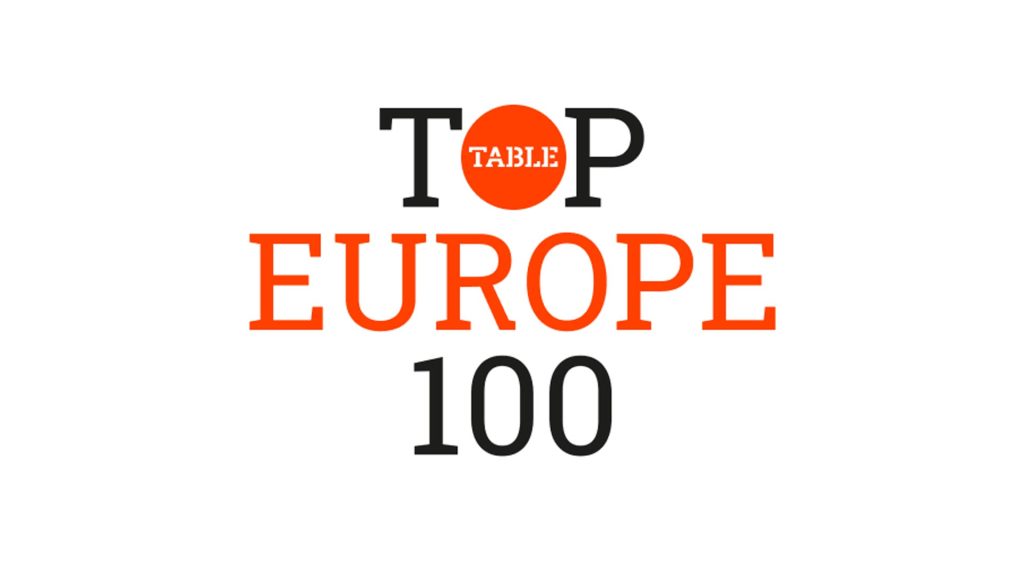
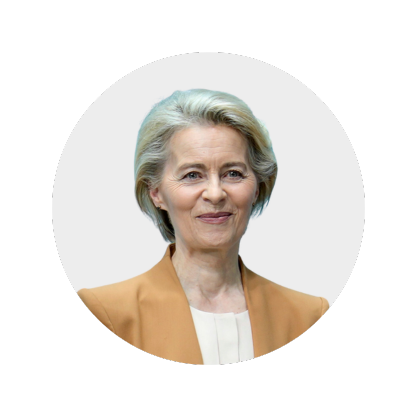
Ursula von der Leyen – President of the EU Commission
The CDU politician has good prospects of becoming Commission President again. This is despite the harsh criticism of her talks with right-wing nationalists such as Giorgia Meloni and the rumors surrounding Mario Draghi. She is respected among the heads of state and government. In the European Parliament, social democrats and liberals have no credible answer as to who should take over from von der Leyen if they refuse to vote for her.
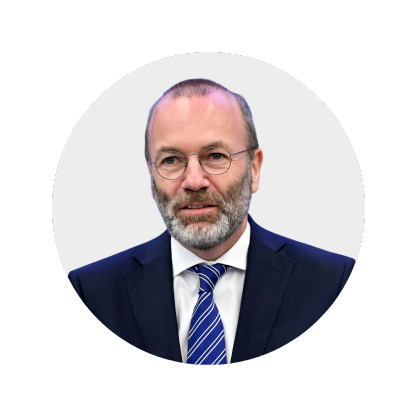
Manfred Weber – EPP leader
The party and parliamentary group leader of the European Christian Democrats currently seems at peace with himself: The EPP is likely to win the European elections, von der Leyen and others have swung to his course of rapprochement with parties to the right of the EPP. Weber will therefore be able to pull important strings in the upcoming personnel and coalition poker.
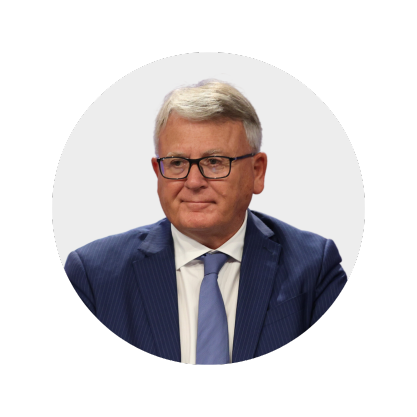
Nicolas Schmit – lead candidate of Europe’s social democrats
As Mr. Minimum Wage, the incumbent Social Affairs Commissioner has not pushed through just one key issue for the European Social Democrats. Although he lacks the bite of an election campaigner, the long-time diplomat could claim another top job after the election: Foreign Affairs Commissioner.
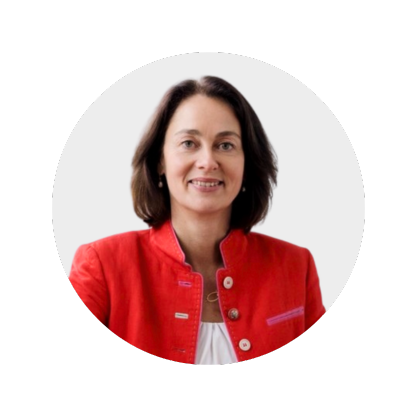
Katarina Barley – Parliamentary Vice-President and top candidate of the SPD
As the lead candidate of the German Social Democrats, Barley was responsible for a historically poor result in 2019. This time, she will have to show that the comrades can at least achieve a little more than the 16 percent from the previous election. She has built up a good reputation as Vice-President of Parliament over the past five years – in the election campaign, she is focusing primarily on distinguishing herself from the right.
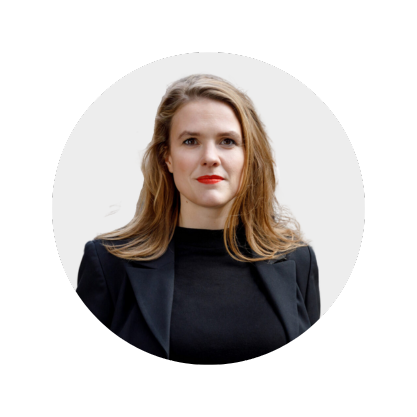
Terry Reintke – Group leader and top candidate for the Greens
The lead candidate of the German and European Greens is campaigning for an open-minded and tolerant Europe. On the campaign trail, she repeatedly reminds people what a Europe that has moved to the right means for queer people, people with a history of migration and the socially disadvantaged. She wants to fight for a Europe that these people can continue to call home, says the Gelsenkirchen native. Her condition for supporting a second term in office for von der Leyen is therefore a clear demarcation to the right.

Karoline Edtstadler – Minister for Europe in Austria
The ÖVP politician wants to become the new EU Commissioner – and also has good prospects of being nominated by Austria. She has a wealth of experience in European policy, was already one of the faces of the Austrian Council Presidency in 2018 and has served as Federal Minister for the EU and Constitution in the Federal Chancellery in Vienna for more than four years.
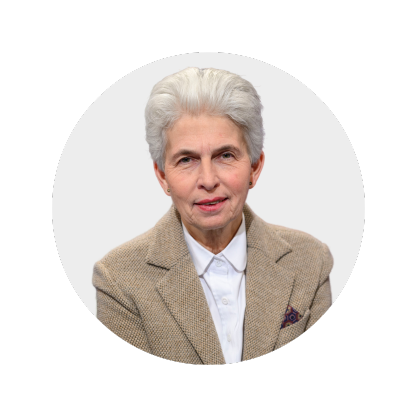
Marie-Agnes Strack-Zimmermann – FDP top candidate
The Liberal frontwoman has made a considerable impact in the Bundestag through her public presence and will also be involved in security policy debates from the European Parliament. However, the former federal and local politician will probably need some time to find her feet in Strasbourg and Brussels.
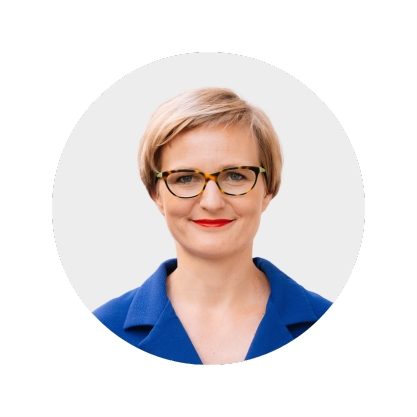
Franziska Brantner – Parliamentary State Secretary at the BMWK
The work of the Parliamentary State Secretary at the BMWK recommends her for higher tasks. She is extremely active and assertive in her areas of responsibility in trade and raw materials policy – and always has Europe in mind. Should the Greens be entitled to a Commissioner’s post after a withdrawal from von der Leyen, she would be one of the candidates.
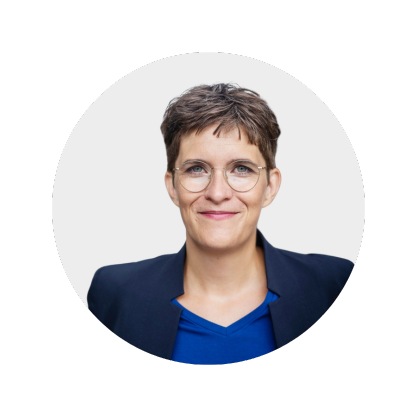
Anna Lührmann – Minister of State for Europe at the Federal Foreign Office
The Green politician is trying to prepare for EU enlargement to include the Western Balkan states, Ukraine and Moldova, while at the same time driving forward the discussion on institutional reforms in the EU. In view of the resistance in many member states, however, she must proceed with caution.
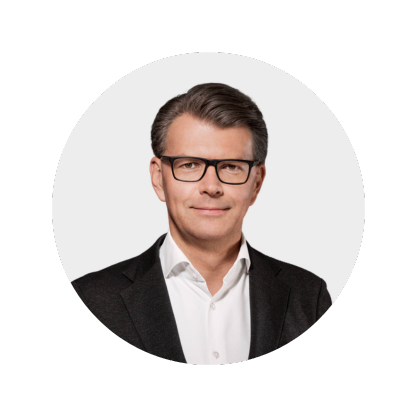
Daniel Caspary – Head of the CDU/CSU delegation in the EU Parliament
The 48-year-old Christian Democrat has been a member of the European Parliament for 20 years. As chairman of the large CDU/CSU delegation in the European Parliament, he is one of the most influential parliamentarians in Brussels. One of his specialties is trade policy.
Following Emmanuel Macron’s state visit to Germany, the Franco-German Defense and Security Council is to send positive signals to Ukraine and on joint armaments projects on Tuesday. According to the Élysée, Macron’s proposals from his Sorbonne speech will form the basis for the discussions. The French President wants to form a European initiative to create capacities for strikes far into enemy territory and for missile defense.
In contrast to the European Sky Shield Initiative (Essi) air defense project, which Scholz initiated in 2022 and which runs counter to French arms protectionism with American procurements, Berlin and Paris appear to be moving towards each other in the development of air defense. In the Economist, Scholz welcomed Macron’s emphasis on the European dimension of France’s nuclear forces and called for discussions on the right mix of capabilities to defend Europe and deter attackers. “Bloomberg” reports that concrete plans for deeper air defense cooperation will be presented at the meeting.
Paris accuses Berlin of being too timid in its support for Ukraine. Macron is already supporting the Ukrainian fighters with Scalp cruise missiles, while Scholz is holding back the Taurus cruise missiles. The ministers of the two countries could send messages of success with talks on the Future Combat Air System (FCAS) fighter jet project and the mirror project for the “tank of the future” Main Ground Combat System (MGCS). The aircraft project is currently proceeding without conflict because there is no need to negotiate.
And with this, welcome to our 700th issue!


Kurt Vandenberghe, the commission proposed a net greenhouse gas reduction target of 90 percent for 2040, at a point where the legislation for the 2030 climate target is not yet fully implemented. What exactly are you preparing currently?
The full climate transition is basically an agenda of modernizing our economy and investing. Investment that our economy needs, because investment in China is 40 percent of GDP, in Europe it is 20 percent. So, all the talk about competitiveness is basically brought down to the question of how much you invest in your economy. And we have a lot of catching up to do.
But why now? There’s hardly any momentum for climate policy at the moment.
When you talk about investment, you can’t have a perspective of six years. You need a perspective of ten, 15, 20 years, because that’s the time horizon for many of these investments. We presented the 2040 communication to give long-term predictability and certainty to investors and economic actors.
And the Green Deal currently does not give that predictability? That was the main reason to set it up in the first place, wasn’t it?
When we look at investment in the future, we have a framework with the Fit for 55 package that is very fit for 2030. But it is not necessarily fit for 2040. With our current framework, if we extend beyond 2030, we will reduce emissions by 88 percent in 2040, but not in the most cost-efficient manner.
Why not?
ETS 1 for example would go to zero emission allowances by 2039 which would be prohibitive for a number of industry sectors. Take cement for example, they have process emissions which they cannot mitigate or abate so it will become very expensive for them. Also, not all sectors are covered sufficiently, like agriculture for instance. However, we do not want to change the framework for 2030. So, we will not add rules or change rules. We’re only talking about what needs to change after that.
What is the most cost-efficient way?
It won’t be a radical overhaul. What works extremely well is emission trading. So, putting a price on carbon will remain the workhorse of our climate policy. But we also need to go to net negative emissions, so we need carbon removals big time in the future. That’s why we study how to reward carbon removals in the ETS.
For instance, by including the agrifood sector?
The agrifood sector can be a very important sink for carbon. But let me be very clear, we do not have a position on this yet whether we do an ETS for agrifood. We’re studying this currently. But we see an increasing need for land in the future, not only for foods. While food remains the basic premise of agriculture and farming, there’s a need for much more from land in the future: Bioenergy, biogenic carbon, biomass that we need for a circular economy that moves away from fossil fuels. There is the opportunity to store carbon in the soil. So, we argue that there is a greater portfolio of business opportunities ahead for farmers, additional areas of farming that rewards them. One is carbon removals.
And what happens to the EU subsidy scheme for farmers, the so-called CAP?
If there is a broader scale of business opportunities, we should move the model of farming from one based on European subsidies to one based on market signals. This way the farmers become real entrepreneurs and economic actors that respond not to subsidies for which they must fill out a lot of paperwork, but to what the market is willing to buy and to pay for it. If we go in this direction, then what is very important is that the market signals internalize the external costs. In other words, the cost of greenhouse gas emissions. That’s why we’re looking into the possibility of an Agrifood-ETS.
And you think this will get support from farmers?
I think the agrifood ecosystem as a whole is not opposed in principle to this, because the food producers know that this is a way of dealing with scope three emissions, that otherwise they don’t know how to deal with. And the farming sector says, well, it could be interesting as far as it generates revenues that could go back to reward sustainable farming practices. And it would also send a price signal to the consumer, who would be incentivized to a better consumption behavior.
What is the timeline of the legislation for the 2040 target?
We’re currently putting all the studies in place, all the expert groups, all the analysis that is needed. The sequence we will recommend to the next commission is that as soon as the college comes into office, end of this year or beginning of 2025, we adopt the proposal to amend the climate law to introduce the 2040 target. That will then go through the legislative process in the European Parliament and the council. By summer 2025 the Commission needs to come up with the proposal for the next Multiannual Financial Framework which will be crucial as well because, as achieving the targets will be all about investments. Therefore, the way European budget can mobilize and capitalize investment will be very important. In 2026 we would then come up with a new package of proposals to make ourselves fit for 2040.
2026 is also the year when many reviews of current legislations are due…
Yes, we need to avoid that these reviews are done in isolation one from another because we need a systemic view to this. That’s why we want the new legislative package in 2026 which then will give us three or four years to discuss and negotiate with stakeholders, with member states and with the parliament. This way we can prepare the next decades in very close dialogue with all the parties concerned.
António Costa’s track record as Portuguese head of government and his good relations with his European colleagues are some of his strongest credentials. His decision to resign from office has also earned him respect.
In November, the public prosecutor’s office linked his name to the so-called Operation Influencer – based on “vague and contradictory” suspicions, as the investigating judge said in February. Last year, it was even reported that the investigators had made a mistake and confused the prime minister with the economy minister of almost the same name, António Costa Silva.
Costa’s resignation is seen as an example of political responsibility: he resigned without being charged because he considered the initiation of an investigation against him by the Supreme Court to be “incompatible” with the dignity of his office.
Costa made it clear in an interview at the beginning of May that his political career is not over yet. When asked about the possibility of holding European office, the socialist replied “it depends on the circumstances,” but “with an ongoing trial, it is very difficult to find a solution.” Costa has asked the public prosecutor’s office to let him testify “as soon as possible” and offers his “full willingness to cooperate with justice” in order to “dispel all doubts” regarding the suspicions weighing on him.
More than five months have passed and still no one in Portugal knows what circumstances led to Costa being investigated in the influencer affair. At the beginning of May, around fifty personalities from both socialist and conservative circles signed a manifesto denouncing the political interference of the public prosecutor’s office in the case.
The signatories of the document call for greater control of the public prosecutor’s office, which they accuse of violating judicial secrecy and abusing it by using restrictive measures as well as “undue interference in political power.” It has brought Portugal to the “painful brink” of overthrowing two parliamentary majorities.
The manifesto sharply criticizes the fact that the public prosecutor’s office has still not summoned Costa to a hearing. In mid-April, the Supreme Court decided to hand over the investigation against Costa to the Central Investigation and Prosecution Authority (DCIAP). The case has therefore gone to the first instance, like that of any other citizen.
“Costa is credited with strong negotiating skills and the ability to solve problems. His always very realpolitik approach as Prime Minister of Portugal shortly after the euro crisis was well received both by the Portuguese and in Brussels,” says Andreas Bock from the European Council on Foreign Relations (ECFR).
Carlos Molina del Pozo, an expert in EU law, emphasizes Costa’s leadership personality. In his opinion, the office of EU Council President is held by politicians of little political stature. “Costa has the charisma and leadership qualities to pull the other European heads of state and government along and renew the European Council.” Costa is a politician of the caliber of Jacques Delors or Helmut Kohl, who always had the strengthening of the European project in mind.
Influential heads of government such as Olaf Scholz and Emmanuel Macron are said to support Costa’s candidacy, according to media reports. Portugal’s President Marcelo Rebelo de Sousa also confirmed his support for Costa. However, other European heads of state may have doubts due to the ongoing investigations. “That is why alternative candidates are certainly being considered. So far, however, no other candidate has emerged,” says Bock.
In addition to Costa, Spain’s Pedro Sánchez and Danish Prime Minister Mette Frederiksen were also among the names mentioned by the Socialists to succeed Charles Michel. However, Sánchez’s possible candidacy lost weight after he took a five-day break from his duties as Spanish Prime Minister at the end of April to consider whether he would remain in office.
“Sánchez is appreciated by many in Brussels, but there are also a lot of reservations about his person. Above all, his critics doubt that he has the right profile for the job,” says Andreas Bock from ECFR. “Sánchez is also accused of using the Spanish Council Presidency to pursue domestic political goals.” Frederiksen is said to have taken herself out of the running in mid-May when she answered “no” to whether she would be considered for an EU presidency on the fringes of a conference in Copenhagen, Bock continued. Frederiksen is controversial because of her strict immigration policy.
May 30-31, 2024, Svendborg (Denmark)
EC, Conference European Maritime Day 2024
The European Commission (EC) discusses and outlines joint action on maritime affairs and sustainable blue economy. INFO & REGISTRATION
May 30-31, 2024, Geneva (Switzerland)
AI for Good Global Summit
The summit provides opportunities for AI innovators and problem owners to learn, build and connect to help identify practical AI solutions to advance the United Nations Sustainable Development Goals. INFO & REGISTRATION
May 30, 2024, 11 a.m., online
smartEn, Seminar Electric Vehicles coupled with on-site solar generation: opportunities and implications for smart buildings
Smart Energy Europe (smartEn) explores the EU project V2Market. INFO & REGISTRATION
May 30, 2024, 11-12:30 a.m., online
Marcogaz, Seminar Tech Forum on Gas Odorization
Marcogaz addresses the production, measurement and regulation of gas odorants in Europe. INFO & REGISTRATION
May 30, 2024, 3-5 p.m., Brussels (Belgium)
ERCST, Seminar 2024 State of the European Hydrogen Market Report
The European Roundtable on Climate Change and Sustainable Transition (ERCST) presents the EU Hydrogen Market Report. INFO & REGISTRATION
EU Commission President Ursula von der Leyen is once again seeking an EPP alliance with social democrats and liberals after the European elections. “I want to form the platform in the middle,” she said on Monday at the WDR Europaforum. Whether this would include the Greens alongside the S&D and Renew would depend on how they act after the election.
Leading social democrats had harshly criticized the EPP lead candidate because she had shown herself open to cooperation with parties to the right of the EPP, such as the Fratelli d’Italia. Italy’s Prime Minister Giorgia Meloni is “clearly pro-European” and has positioned herself against Russia’s President Putin, said von der Leyen during the TV debate last Thursday.
However, she does not want this to be understood as an absolution of suspicion for working with Meloni: “You’ve never heard me say that,” she replied to a question from the moderator. After the election, the parliamentary groups would first have to reorganize. She wanted to use the platform to “make good offers that would find majorities on a case-by-case basis.” Especially in these times, it is important to form a strong majority for pro-European policies.
Von der Leyen ruled out cooperation with Marine Le Pen’s French Rassemblement National (RN). “They are paid by Putin,” she said, and wanted to destroy this Europe. Le Pen had campaigned aggressively at the weekend to form a parliamentary group with Meloni’s Fratelli after the election. So far, the RN is in the far-right ID group, the Fratelli in the national-conservative ECR. Together they could become the second strongest force in the new parliament, according to Le Pen.
Von der Leyen said that it was not her job to judge how radical Meloni, who is often dubbed post-fascist, was. The Commission prepares annual rule of law reports for this purpose, which must be based on objective facts. It must work well with Meloni, as with the other 26 heads of state and government in the European Council, in order to move Europe forward. tho
All texts on the 2024 European elections can be found here.
The Member States adopted several laws on industrial and climate policy on Tuesday. With the Net-Zero Industry Act (NZIA), the EU wants to ramp up production capacities in order to cover 40 percent of the technologies required for decarbonization from domestic production from 2030. However, the target is voluntary. For this, approval procedures will be simplified, for example.
The NZIA also sets a target for the geological storage of carbon dioxide (CCS). From 2030, the EU wants to store 50 million tons of the greenhouse gas underground.
A further regulation was passed to reduce methane in the energy sector. It restricts the flaring and venting of the greenhouse gas in the extraction of fossil fuels. For 2030, the Commission must present maximum values for methane intensity in the extraction of coal, oil and gas. If producers or importers do not comply with the limits, they will face penalties.
The methane regulation is a key measure for the EU to fulfill the Global Methane Pledge. Commission President Ursula von der Leyen presented the initiative three years ago together with US President Joe Biden at COP26 in Glasgow. The signatories want to reduce global methane emissions by 30 percent by 2030 compared to 2020.
The Council also gave its final approval to the Ecodesign Regulation on Monday. The law has thus been adopted and can be published in the Official Journal of the EU after the President of the European Parliament and the President of the Council have signed it. It will enter into force 20 days later. The new rules will apply 24 months after entry into force, i.e. from summer 2026.
The Ecodesign Regulation sets out requirements for more sustainable products and prohibits the destruction of unsold textiles and footwear. It replaces the existing Ecodesign Directive and extends its scope beyond energy products to almost all products placed on the EU market. The Commission will define the specific ecodesign requirements for individual product groups in delegated acts. According to the Federal Ministry of Economics, the first legal acts are expected at the end of 2025. The industry will then have 18 months to comply. ber/leo/rtr
Hungary has come under massive pressure due to its blockade of new EU military aid for Ukraine. Following a meeting of EU foreign ministers in Brussels, EU Foreign Policy Chief Josep Borrell spoke of an unusually “heated” debate. The dispute had “gone very far,” said Lithuania’s Foreign Minister Gabrielius Landsbergis. This was indirectly confirmed by Hungary. The “supporters of war” had “shouted” at the meeting, said Hungarian Foreign Minister Péter Szijjártó. However, his government will not give in to the pressure.
At issue are seven European legal texts and military aid worth €5 billion, which Hungary is blocking with its veto. Most recently, the dispute has also spread to Russian assets, the proceeds of which the EU wants to use for Ukraine.
Federal Foreign Minister Annalena Baerbock called on the government in Budapest to end the blockade as quickly as possible. She appealed “urgently to Hungary” to allow further support for Ukraine. Representatives of almost all EU states expressed similar sentiments. Borrell said that the blockade was no longer proportionate and was leading to delays in military aid. “This delay can be measured in terms of human lives,” said the Spaniard.
Regardless of Hungarian resistance, the Permanent Representatives Committee will discuss the utilization of Russian assets this week, Borrell announced. The interest income is to amount to €2.5 to €3 billion per year and 90 percent of it is to be used for arms aid. He hoped that Hungary would not block this initiative, said Borrell. After all, Budapest had already received the promise that the Hungarian share would not be used for arms aid. This is also about the EU’s credibility.
At their meeting, the foreign ministers also agreed on a legal framework that enables sanctioning human rights violations in Russia. On this basis, sanctions were initially imposed on Russian judges who were involved in proceedings against the Kremlin critic Alexei Navalny, who died in a prison camp in February.
In addition, the Federal Penitentiary Service of the Russian Federation and persons accused of repression against artists as well as the Russian human rights activist Oleg Orlov, who was sentenced to two and a half years in prison. The new sanctions consist in particular of EU entry bans and asset freezes.
Another topic of the Foreign Affairs Council was the war in Gaza. Borrell was “horrified by the news coming out of Rafah on Israeli strikes killing dozens of displaced persons, including small children.” He condemned this in the strongest possible terms. However, possible reactions have not yet been discussed, said the EU chief diplomat. Some EU countries such as Spain and Ireland, as well as the Belgian EU Presidency, are thinking aloud about sanctions. Israel announced an investigation. Prime Minister Benjamin Netanyahu spoke of a “tragic mistake.” ebo/dpa
Less than two weeks before the European elections, in which polls predict a rise in the far right, French head of state Emmanuel Macron warned of the “ill wind blowing in Europe.” He condemned illiberal regimes and sharply criticized Hungary’s Prime Minister Viktor Orbán. He said he was taking “money from Europe” in order to “forget the independence of judges, freedom of the press, cultural diversity, the autonomy of universities and academic freedom.”
“Our Europe is not a supermarket, it is a foundation of values, culture, individual and political freedoms,” said Macron. And he demanded: “Let us no longer be creatures of habit, but committed to the European idea and democracy.”
The French President emphasized that the European Union’s support for Ukraine was crucial in the face of Russian aggression. A better European defense is necessary, he said, as “Russia will be there tomorrow and the day after tomorrow” and Europe must think of its defense “for itself.” He once again pleaded for “an independent and sovereign Europe,” a concept that he had developed in his Sorbonne speech on the future of Europe at the end of April.
Macron also reiterated his call for a “common public investment shock” in Europe to promote growth on the continent. At least a doubling of EU funds is necessary, he said. This also includes the controversial new own resources for the EU.
It is the first trip by a French president to East Germany as part of a state visit since the fall of the Berlin Wall. Emmanuel Macron has described Dresden as the “metaphor for a European phoenix,” a city destroyed in the Second World War that has become a city of innovation.
Emmanuel Macron’s trip to Dresden illustrates Paris’ desire to rebalance Franco-German relations, which are still focused on the western part of Germany almost 35 years after the fall of the Berlin Wall. Almost 6,000 French companies are represented in Germany, compared to just 300 in the east of the country, according to the French Chamber of Commerce and Industry in Germany. cst
It is rather rare for Greens and Conservatives to agree. At the EU Agriculture Council in Brussels on Monday, however, the Green Federal Minister of Agriculture, Cem Özdemir, joined forces with his conservative colleague from Austria, Norbert Totschnig, on several occasions. Özdemir was open to Totschnig’s renewed demand to lower the protection status of wolves. The nuances still needed to be discussed, but the wolf had “no place” in agriculture. He leaves his party colleague, Environment Minister Steffi Lemke, alone in her opposition to the relaxation.
Also together with Totschnig, Özdemir once again put the expansion of origin labeling on the agenda. An initiative by the EU Commission has so far failed to materialize, and Özdemir now wants to prevent the issue from disappearing into a drawer after the European elections. The initiative was welcomed by many ministers, but opposition came mainly from smaller countries such as Ireland and Luxembourg. They fear a fragmentation of the European single market and disruption to trade in border regions.
With a view to extreme weather and market disruptions, the ministers also took a close look at the crisis instruments of the Common Agricultural Policy. In addition to the dedicated crisis reserve, direct payments can also be used in part to support farms in crises such as drought or flooding. jd
The Belgian Council Presidency’s plan to make progress in the deadlocked negotiations on EU genetic engineering law with a new compromise proposal on patent protection does not seem to be working. Talks between representatives of the member states remained tough last week and there are still no signs of an imminent breakthrough, according to well-informed sources.
The Belgian proposal on patent protection apparently does not go far enough for the EU member states, which fear obstacles to farmers’ and breeders’ access to plant material. At the same time, Poland’s consent, which the Belgians had hoped for, and which would enable a majority, seems to be receding further and further into the distance. Despite the setback, the Belgian Council Presidency is determined to find an agreement before handing over the Council Presidency to Hungary at the end of June.
The Belgians had proposed that genetically modified plant material should only fall under the NGT-1 category if it is not also under patent protection. Kai Purnhagen, Professor of Food Law at the University of Bayreuth, finds this legally difficult. “If a company applies for a patent, the NGT-1 status would also be lost for everyone else,” he emphasizes. This would have the potential to result in claims for damages.
According to the compromise text, both the EU Commission and national authorities could withdraw the already granted NGT-1 status for further “justified reasons” – for Purnhagen, another gateway for claims for damages. “Nobody would accept NGT-1 status if it could simply be withdrawn again,” he fears. Another problem is that NGT-1 status at the European level depends on whether patents are granted at the national level. “The fact that which classification applies at the EU level depends on the exercise of national law is questionable under European law,” says Purnhagen.
There is also opposition from critics of genetic engineering. The proposal mixes “economic aspects with questions of safety for humans and the environment,” criticizes the Testbiotech Institute. “The risks of NGT plants” exist “independently of the patent issue” and should not be mixed up with it. jd


Ursula von der Leyen – President of the EU Commission
The CDU politician has good prospects of becoming Commission President again. This is despite the harsh criticism of her talks with right-wing nationalists such as Giorgia Meloni and the rumors surrounding Mario Draghi. She is respected among the heads of state and government. In the European Parliament, social democrats and liberals have no credible answer as to who should take over from von der Leyen if they refuse to vote for her.

Manfred Weber – EPP leader
The party and parliamentary group leader of the European Christian Democrats currently seems at peace with himself: The EPP is likely to win the European elections, von der Leyen and others have swung to his course of rapprochement with parties to the right of the EPP. Weber will therefore be able to pull important strings in the upcoming personnel and coalition poker.

Nicolas Schmit – lead candidate of Europe’s social democrats
As Mr. Minimum Wage, the incumbent Social Affairs Commissioner has not pushed through just one key issue for the European Social Democrats. Although he lacks the bite of an election campaigner, the long-time diplomat could claim another top job after the election: Foreign Affairs Commissioner.

Katarina Barley – Parliamentary Vice-President and top candidate of the SPD
As the lead candidate of the German Social Democrats, Barley was responsible for a historically poor result in 2019. This time, she will have to show that the comrades can at least achieve a little more than the 16 percent from the previous election. She has built up a good reputation as Vice-President of Parliament over the past five years – in the election campaign, she is focusing primarily on distinguishing herself from the right.

Terry Reintke – Group leader and top candidate for the Greens
The lead candidate of the German and European Greens is campaigning for an open-minded and tolerant Europe. On the campaign trail, she repeatedly reminds people what a Europe that has moved to the right means for queer people, people with a history of migration and the socially disadvantaged. She wants to fight for a Europe that these people can continue to call home, says the Gelsenkirchen native. Her condition for supporting a second term in office for von der Leyen is therefore a clear demarcation to the right.

Karoline Edtstadler – Minister for Europe in Austria
The ÖVP politician wants to become the new EU Commissioner – and also has good prospects of being nominated by Austria. She has a wealth of experience in European policy, was already one of the faces of the Austrian Council Presidency in 2018 and has served as Federal Minister for the EU and Constitution in the Federal Chancellery in Vienna for more than four years.

Marie-Agnes Strack-Zimmermann – FDP top candidate
The Liberal frontwoman has made a considerable impact in the Bundestag through her public presence and will also be involved in security policy debates from the European Parliament. However, the former federal and local politician will probably need some time to find her feet in Strasbourg and Brussels.

Franziska Brantner – Parliamentary State Secretary at the BMWK
The work of the Parliamentary State Secretary at the BMWK recommends her for higher tasks. She is extremely active and assertive in her areas of responsibility in trade and raw materials policy – and always has Europe in mind. Should the Greens be entitled to a Commissioner’s post after a withdrawal from von der Leyen, she would be one of the candidates.

Anna Lührmann – Minister of State for Europe at the Federal Foreign Office
The Green politician is trying to prepare for EU enlargement to include the Western Balkan states, Ukraine and Moldova, while at the same time driving forward the discussion on institutional reforms in the EU. In view of the resistance in many member states, however, she must proceed with caution.

Daniel Caspary – Head of the CDU/CSU delegation in the EU Parliament
The 48-year-old Christian Democrat has been a member of the European Parliament for 20 years. As chairman of the large CDU/CSU delegation in the European Parliament, he is one of the most influential parliamentarians in Brussels. One of his specialties is trade policy.
